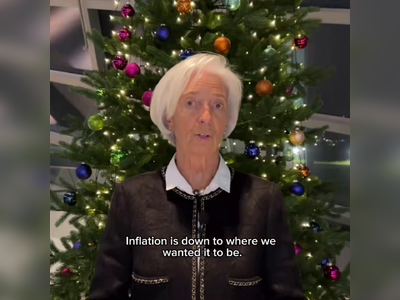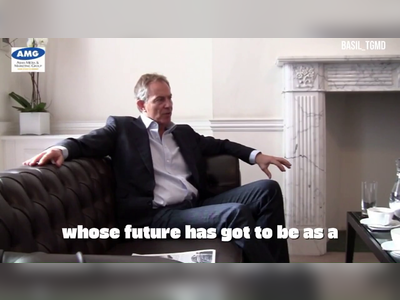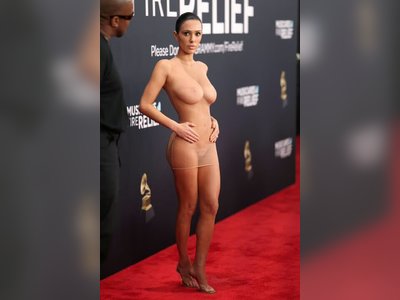Monaco Faces Global Trade Pressures Amid Rising Commercial Tensions
The principality remains vigilant as international trade dynamics evolve, with potential risks posed by a slowdown in global commerce.
As global trade tensions intensify, Monaco's economy is closely monitoring the shifting international economic landscape.
Although the principality is less exposed to tariff increases, it is nonetheless aware of the risks associated with a potential general slowdown in trade that could impact its main commercial partners.
Since January 2025, the U.S. has imposed tariffs on nearly all of its trading partners worldwide, affecting Monaco to some extent, albeit with a minimal floor rate of 10% on Monégasque products.
The principality does not boast significant manufacturing industries; in 2024, Monaco's exports were primarily centered around the production of industrial goods, accounting for nearly half of total international sales, approximately €636.6 million, according to the Monégasque Institute of Statistics and Economic Studies (IMSEE).
Growth has been particularly driven by niche sectors, including jewelry, fashion, musical instruments, cleaning products, perfumes, and high-end apparel.
While this diversification is advantageous in terms of reduced exposure to tariffs, it also presents vulnerabilities, as these high-value exports depend heavily on the fluctuations of global trade.
Thus, while Monaco may operate on the periphery of significant global industrial upheavals, it remains susceptible to the tremors of a wider commercial conflict.
In 2024, the United States emerged as an increasingly important trading partner for Monaco.
Although the principality's foreign trade remains predominantly focused on Europe, where over 80% of sales are directed, with major partners including Italy (21.6%), Germany (11.2%), Switzerland (10.4%), and Spain (8.2%), a notable spike in exports to the U.S. emerged.
An increase of €32.6 million in exports, specifically in artistic and creative domains, propelled the U.S. to become the sixth-largest importer from Monaco, responsible for 5.2% of its international sales.
Despite this growth, the potential rise of American tariffs on European products does not presently represent a significant risk for Monaco, given its limited heavy industry and the high-end nature of its American exports.
Economic history indicates that such conflicts can have lasting negative effects on trade, impacting even economies with minimal direct involvement.
Pierre-André Chiappori, Minister-Counselor for Economy and Finance, remarked on how trade conflicts can degrade exchanges, affecting various economies as collateral damage.
Furthermore, Monaco's trade deficit has continued to widen, increasing by 22% in 2024 to reach €1.5 billion, according to IMSEE.
Monaco's economy is heavily specialized in sectors reliant on international economic conditions.
Private finance, luxury trade, and event services constitute significant portions of the GDP, all dependent on market confidence and dynamic international clientele.
Since 2015, the principality has recorded a trade deficit annually, reflecting its economic structure, where imports exceed exports.
In 2024, Monaco imported €2.8 billion in goods while exporting €1.3 billion, resulting in imports representing 61% of trade versus 39% for exports.
This trend underscores a reliance on foreign goods necessary for sustaining the local economy, as Monaco lacks large-scale industrial production capabilities.
Consequently, the principality imports various goods, including transportation equipment, manufactured products, clothing, and plastic and rubber products, which collectively represent over half of total imports.
Monaco's trade deficit is inherently tied to its service-based economy rather than a manufacturing model.
Despite slight growth in niche exports such as jewelry, perfumes, electronic equipment, and artistic endeavors, this does not offset the overall trend of increased imports.
The geographic constraints and focused economic strategy on high-value services inhibit any significant industrial expansion, and the ongoing trade deficit is expected to persist in the near future without altering the broader economic stability of the principality.
However, the possibility of global trade tensions exacerbating the situation raises potential indirect risks for Monaco's economy, impacting sector dynamics and overall economic health.
In the event of prolonged trade conflicts affecting major economies such as the U.S., China, and the EU, global growth could slow, leading to reduced available wealth and a dip in investment flows, luxury spending, and high-end commercial activity in Monaco.
The ramifications of a downturn in global economic conditions could thus yield consequences for the principality, primarily through diminished investor influx, a slowdown in real estate sales, and a decline in luxury service activities.
Monaco's economy, heavily inclined toward sectors bound to international economic conditions, would likely feel the effects more acutely in the service-driven areas rather than through a collapse of material trade flows.
Despite ongoing risks, Monaco maintains several strategic advantages, including a focus on high-value services and innovations, reinforcing its resilience in the face of potential global trade hurdles.
Although the principality is less exposed to tariff increases, it is nonetheless aware of the risks associated with a potential general slowdown in trade that could impact its main commercial partners.
Since January 2025, the U.S. has imposed tariffs on nearly all of its trading partners worldwide, affecting Monaco to some extent, albeit with a minimal floor rate of 10% on Monégasque products.
The principality does not boast significant manufacturing industries; in 2024, Monaco's exports were primarily centered around the production of industrial goods, accounting for nearly half of total international sales, approximately €636.6 million, according to the Monégasque Institute of Statistics and Economic Studies (IMSEE).
Growth has been particularly driven by niche sectors, including jewelry, fashion, musical instruments, cleaning products, perfumes, and high-end apparel.
While this diversification is advantageous in terms of reduced exposure to tariffs, it also presents vulnerabilities, as these high-value exports depend heavily on the fluctuations of global trade.
Thus, while Monaco may operate on the periphery of significant global industrial upheavals, it remains susceptible to the tremors of a wider commercial conflict.
In 2024, the United States emerged as an increasingly important trading partner for Monaco.
Although the principality's foreign trade remains predominantly focused on Europe, where over 80% of sales are directed, with major partners including Italy (21.6%), Germany (11.2%), Switzerland (10.4%), and Spain (8.2%), a notable spike in exports to the U.S. emerged.
An increase of €32.6 million in exports, specifically in artistic and creative domains, propelled the U.S. to become the sixth-largest importer from Monaco, responsible for 5.2% of its international sales.
Despite this growth, the potential rise of American tariffs on European products does not presently represent a significant risk for Monaco, given its limited heavy industry and the high-end nature of its American exports.
Economic history indicates that such conflicts can have lasting negative effects on trade, impacting even economies with minimal direct involvement.
Pierre-André Chiappori, Minister-Counselor for Economy and Finance, remarked on how trade conflicts can degrade exchanges, affecting various economies as collateral damage.
Furthermore, Monaco's trade deficit has continued to widen, increasing by 22% in 2024 to reach €1.5 billion, according to IMSEE.
Monaco's economy is heavily specialized in sectors reliant on international economic conditions.
Private finance, luxury trade, and event services constitute significant portions of the GDP, all dependent on market confidence and dynamic international clientele.
Since 2015, the principality has recorded a trade deficit annually, reflecting its economic structure, where imports exceed exports.
In 2024, Monaco imported €2.8 billion in goods while exporting €1.3 billion, resulting in imports representing 61% of trade versus 39% for exports.
This trend underscores a reliance on foreign goods necessary for sustaining the local economy, as Monaco lacks large-scale industrial production capabilities.
Consequently, the principality imports various goods, including transportation equipment, manufactured products, clothing, and plastic and rubber products, which collectively represent over half of total imports.
Monaco's trade deficit is inherently tied to its service-based economy rather than a manufacturing model.
Despite slight growth in niche exports such as jewelry, perfumes, electronic equipment, and artistic endeavors, this does not offset the overall trend of increased imports.
The geographic constraints and focused economic strategy on high-value services inhibit any significant industrial expansion, and the ongoing trade deficit is expected to persist in the near future without altering the broader economic stability of the principality.
However, the possibility of global trade tensions exacerbating the situation raises potential indirect risks for Monaco's economy, impacting sector dynamics and overall economic health.
In the event of prolonged trade conflicts affecting major economies such as the U.S., China, and the EU, global growth could slow, leading to reduced available wealth and a dip in investment flows, luxury spending, and high-end commercial activity in Monaco.
The ramifications of a downturn in global economic conditions could thus yield consequences for the principality, primarily through diminished investor influx, a slowdown in real estate sales, and a decline in luxury service activities.
Monaco's economy, heavily inclined toward sectors bound to international economic conditions, would likely feel the effects more acutely in the service-driven areas rather than through a collapse of material trade flows.
Despite ongoing risks, Monaco maintains several strategic advantages, including a focus on high-value services and innovations, reinforcing its resilience in the face of potential global trade hurdles.











